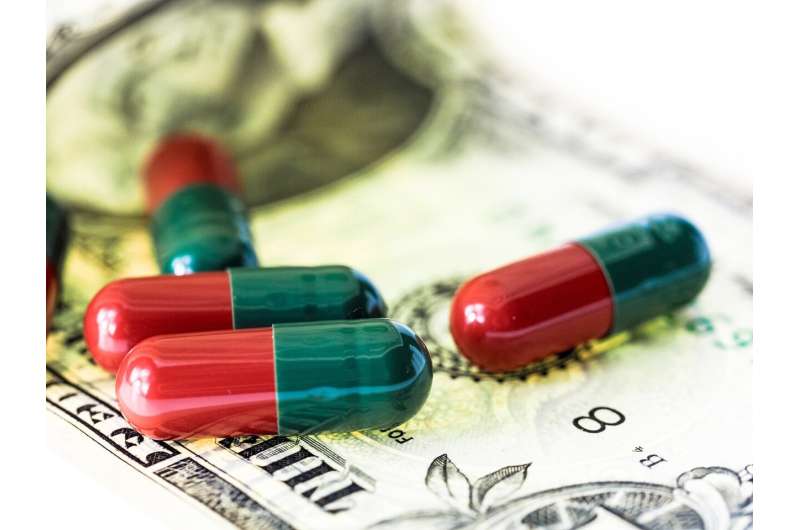Medicare beneficiaries without low-income subsidies were less likely to fill important prescriptions, new study finds

Medicare Part D beneficiaries who did not receive federal subsidies to lower their out-of-pocket costs were nearly twice as likely as others to not fill prescriptions for serious health conditions like cancer or hepatitis C treatment, according to a new study from Vanderbilt University Medical Center researchers.
The study, published in Health Affairs and led by Stacie Dusetzina, Ph.D., Ingram associate professor of Cancer Research and associate professor of Health Policy, compared medication prescribing records with prescription fill data for fee-for-service Medicare beneficiaries enrolled in Part D drug benefits who were treated at 11 health systems across the U.S. between 2012-2018.
The team focused on new prescriptions for high-priced medications to treat cancer, hepatitis C, immune system disorders or hypercholesterolemia. They compared rates of prescription filling for Medicare beneficiaries with and without low-income subsidies since the drugs studied can cost beneficiaries without subsidies hundreds or thousands of dollars out-of-pocket for their first fill. In 2021, more than 70% of Medicare Part D beneficiaries did not qualify for low-income subsidies and faced very high costs when filling these prescriptions.
The authors found that among patients without subsidies, 30% did not fill their prescribed cancer treatments. Twenty-two percent of patients without subsidies did not fill curative treatments for hepatitis C, and more than 50% did not fill disease-modifying therapies for immune disorders.
"Overall, we found that a very large percentage of Medicare beneficiaries who are prescribed a new and expensive drug for treating conditions like cancer, rheumatoid arthritis, multiple sclerosis, and hepatitis C are not filling these drugs," Dusetzina said. "The rate of not filling is nearly twice as high for beneficiaries who lack subsidies, which is the case for most Medicare beneficiaries. These beneficiaries face very high costs when starting a drug and unlimited out-of-pocket spending over the year."
The study is unique in that it was able to link data from electronic health records on prescriptions written from 11 health systems across the country with Medicare Part D claims data on prescription fills to determine whether patients who were newly prescribed a drug with a list price of at least $670 filled the prescription within 90 days. They also assessed if patients who did not fill prescriptions for a new drug began an alternate treatment. Although some did, the overall rates of not starting any drug were still high.
Dusetzina noted in the paper that this research continues to highlight and support the bipartisan efforts to reform the Medicare prescription drug benefit. Congress has discussed several policy proposals, including some that contain annual out-of-pocket caps for Medicare patients.
A statement read, "Today many Medicare beneficiaries with serious illnesses are not able to afford their treatments due to the outdated Medicare Part D benefit design. Nearly all other health plans in the U.S. include out-of-pocket maximums to protect people from unlimited spending. It is time for Congress to revise the Medicare benefit to make sure that beneficiaries can access the treatments that they need."
More information: Stacie B. Dusetzina et al, Many Medicare Beneficiaries Do Not Fill High-Price Specialty Drug Prescriptions, Health Affairs (2022). DOI: 10.1377/hlthaff.2021.01742



















